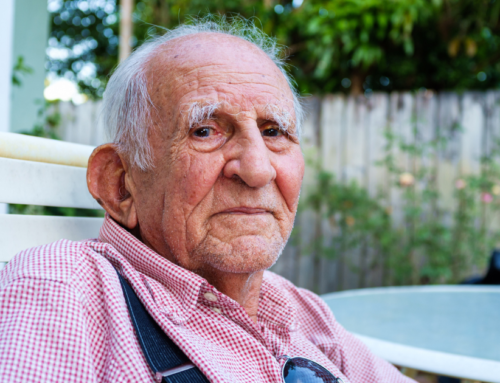Dear Family Resource,
My dad was once a reserved professor but now he has dementia and has become flirtatious and inappropriate. When I take him for a walk or to a restaurant he waves and tries to talk with all the women. He’ll call out, “Sweetheart, come over here.” They’ll give me a weird look and move away but it leaves me so embarrassed. He even thinks his live-in caregiver is in love with him. He calls her honey and tries to touch her when she walks by. She’s great about it and ignores him or jokes back but I’m so ashamed and I’m afraid she might quit. Is there any way to make him stop?
~Romeo’s Daughter
Dear Romeo’s daughter:
Don’t be embarrassed by your father and his dementia diagnosis. I know people with dementia (or not), may say or do things that are unconventional or draw attention to themselves unknowingly. Often the general public is unaware and has no experience with people with dementia. These situations can be stressful and/or embarrassing for family or companions.
Sometimes these behaviors can be avoided by distraction or engaging a person in a meaningful activity. Often repeated reminders that gently admonish someone for saying or doing something is also helpful. It sounds as though your father’s caregiver is professional, experienced, and that she knows how to redirect him and not take offense to his advances. You may be trying to solve a problem that doesn’t really exist as his caregiver is on top of the situation and is able to redirect your father. If your dad is happy and well-cared for, and his caregiver has figured out ways to deflect his advances and has support from her supervisors, you, and your family, then it sounds to me like things are under control.
Please don’t be ashamed of your dad. Dementia is a disease that impacts so much more than memory – it affects behavior and personality as well. Over the years I’ve met with hundreds of family members with a loved one with dementia. Often the hardest part is not the experience of the person with the disease, but the feelings of the family members who struggle to accept that their loved one has changed into someone they don’t recognize.
I highly recommend that you contact your local Alzheimer’s Association for information and support.
Best,
Family Resource






